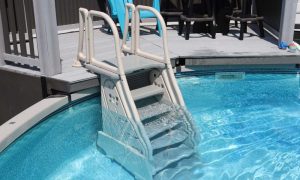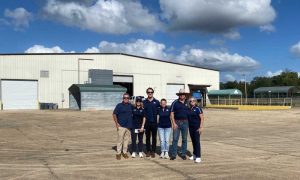A legal battle is brewing that could have major implications for thousands of pool owners across Central Texas. Cody Pools, one of the pool industry’s largest and most recognized builders, is now facing a federal lawsuit — not from a customer, but from its own insurance company. The lawsuit, filed by Continental Insurance Company and National Fire Insurance Company of Hartford (CNA), challenges whether damage caused by concrete cancer, also known as alkali-silica reaction (ASR), should be covered under Cody Pools’ commercial general liability policies.
The Growing Concrete Cancer Crisis
Since the spring of last year, reports of ASR-related pool failures have increased sharply throughout Central Texas. Concrete cancer occurs when concrete, improperly mixed and lacking sufficient fly ash, reacts with water over time. The result is expansive cracking and crumbling that can render a pool unsafe and unusable — often within just a few years of construction.
Experts say thousands of pool owners in the region may be at risk, facing repair costs that can double or triple their original investment. In many cases, the only fix is to demolish and rebuild the entire pool.

Homeowners Caught in the Crossfire
One of those affected is Chris Fulbright, a Central Texas homeowner who paid Cody Pools over $100,000 to build his backyard pool in 2020. A few years later, he moved his family to a new home, planning to rent out the property. That plan fell apart when his pool — now a liability — began showing severe signs of ASR damage.
Fulbright claims Cody Pools assured him they were filing an insurance claim on his behalf, but when progress stalled, he sued the company in May 2023 over what he says is a breach of warranty. The warranty, according to the lawsuit, guarantees the delivery of a structurally sound pool — something concrete cancer quickly stripped away.
Fulbright’s attorney, Joshua Wilson, told reporters this case is one of many he’s handling. “Insurance companies, especially commercial general liability carriers, are doing everything they can to avoid paying out on these claims,” Wilson told news outlets. He believes CNA’s lawsuit is a strategic move designed to delay resolution and increase pressure on homeowners.
CNA’s Case: The Silica Exclusion
In their federal complaint, CNA argues that their policies explicitly exclude coverage for property damage arising from the presence of silica — a key component in concrete and the root cause of ASR. CNA is asking the court to rule that it has “no obligation to defend or indemnify Cody Pools” on these claims.
Cody Pools fired back in their legal response, accusing CNA of acting in bad faith. “CNA reneged on its promises and representations to Cody Pools, claiming that the insurance policies did not provide coverage for pools in which the presence of ASR had been detected.”
In a public statement, Cody Pools’ attorney expressed frustration with the lawsuit. “CNA’s lawsuit against Cody Pools is disappointing. CNA is attempting to abandon its longtime client by claiming that the insurance policies Cody purchased provide no coverage for damage to the most common building material used in the construction industry: concrete. We hope the Western District of Texas, if not CNA, will realize that the coverage positions asserted by CNA are both illogical and deeply unfair to its client and to the homeowners who have pools impacted by this situation.”
Cody Pools’ Response to the Crisis
While the legal fight escalates, Cody Pools has taken steps to address the ASR crisis head-on. According to CEO Mike Church, the company:
 Created a dedicated Response Team to support impacted customers
Created a dedicated Response Team to support impacted customers Cut ties with shotcrete providers linked to the issue
Cut ties with shotcrete providers linked to the issue Stopped using shotcrete altogether in new residential pool construction
Stopped using shotcrete altogether in new residential pool construction Advocated tirelessly on behalf of customers during the insurance claims process
Advocated tirelessly on behalf of customers during the insurance claims process
Church previously explained that the problem appears isolated to three shotcrete providers and several quarries, all of which are no longer part of Cody Pools’ supply chain.
What’s at Stake
The outcome of this lawsuit could reverberate far beyond Cody Pools and Central Texas. If CNA succeeds, other insurers may follow suit, making it harder for builders — and ultimately homeowners — to secure coverage for ASR-related damage. Conversely, a ruling in Cody Pools’ favor could force insurance companies to rethink how they handle claims involving one of the most common materials in the construction industry.
For now, all eyes are on the Western District of Texas, where the case is set to play out. As the battle over concrete cancer heats up, the stakes couldn’t be higher for pool builders, insurers, and homeowners alike.
Pool Magazine will continue following this developing story as it unfolds.
The post Popular Texas Pool Builder at Center of Federal Lawsuit Over Concrete Cancer Coverage appeared first on PoolMagazine.com – Get The Latest Pool News.








